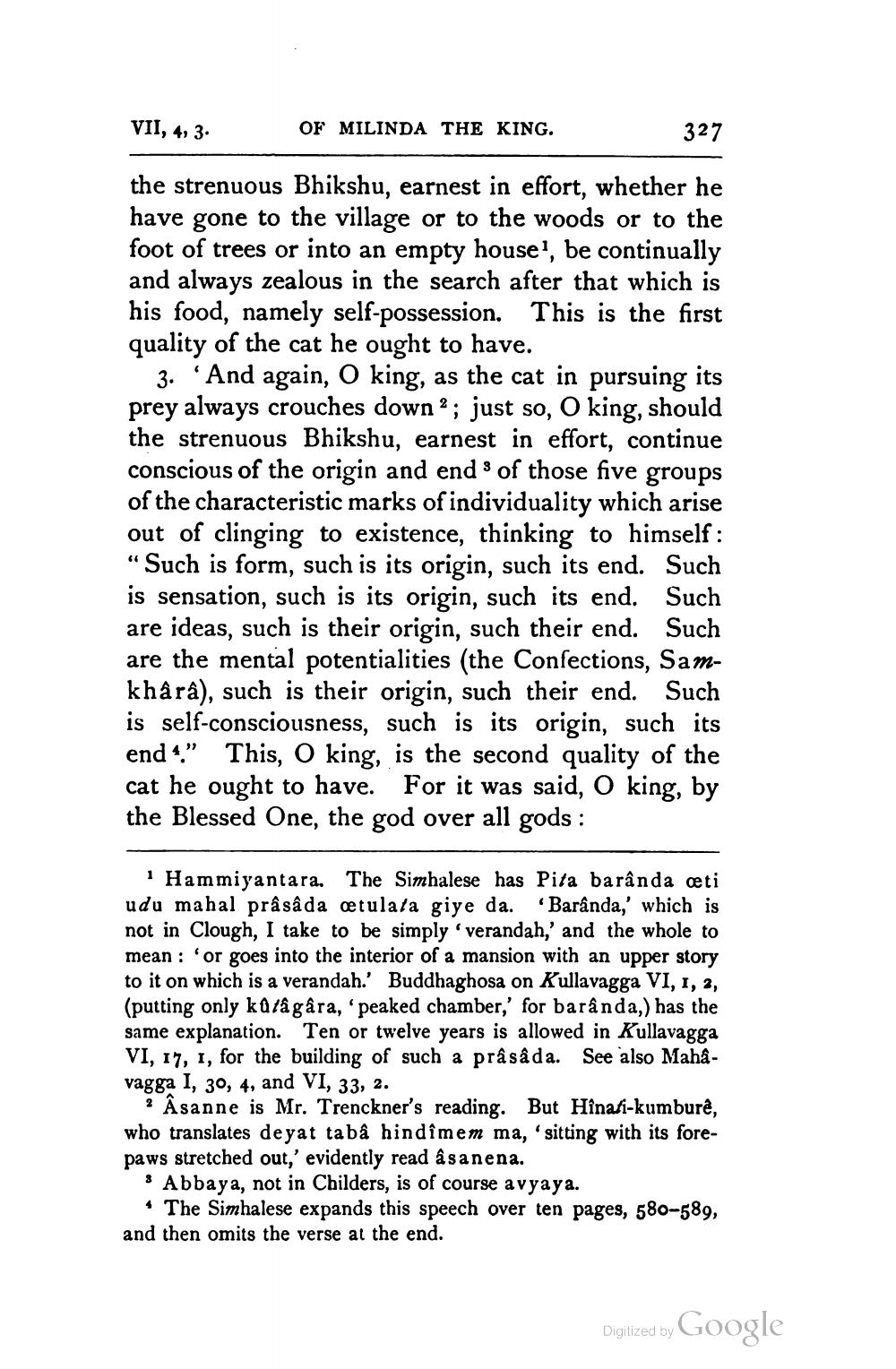________________
VII, 4, 3.
OF MILINDA THE KING.
327
the strenuous Bhikshu, earnest in effort, whether he have gone to the village or to the woods or to the foot of trees or into an empty house', be continually and always zealous in the search after that which is his food, namely self-possession. This is the first quality of the cat he ought to have.
3. ‘And again, O king, as the cat in pursuing its prey always crouches down ?; just so, O king, should the strenuous Bhikshu, earnest in effort, continue conscious of the origin and ends of those five groups of the characteristic marks of individuality which arise out of clinging to existence, thinking to himself: "Such is form, such is its origin, such its end. Such is sensation, such is its origin, such its end. Such are ideas, such is their origin, such their end. Such are the mental potentialities (the Confections, Samkhârâ), such is their origin, such their end. Such is self-consciousness, such is its origin, such its end 4.” This, O king, is the second quality of the cat he ought to have. For it was said, O king, by the Blessed One, the god over all gods :
Hammiyantara. The Simhalese has Pita barânda eti udu mahal prasada etulata giye da. Baranda,' which is not in Clough, I take to be simply 'verandah,' and the whole to mean : 'or goes into the interior of a mansion with an upper story to it on which is a verandah.' Buddhaghosa on Kullavagga VI, 1, 2, (putting only ka tågâra, 'peaked chamber,' for barânda,) has the same explanation. Ten or twelve years is allowed in Kullavagga VI, 17, 1, for the building of such a prâsâda. See also Mahavagga I, 30, 4, and VI, 33, 2.
? Asanne is Mr. Trenckner's reading. But Hînafi-kumbure, who translates deyat taba hindîmem ma, sitting with its forepaws stretched out,' evidently read âsanena.
8 Abbaya, not in Childers, is of course avyaya.
• The Simhalese expands this speech over ten pages, 580-589, and then omits the verse at the end.
Digitized by Google




